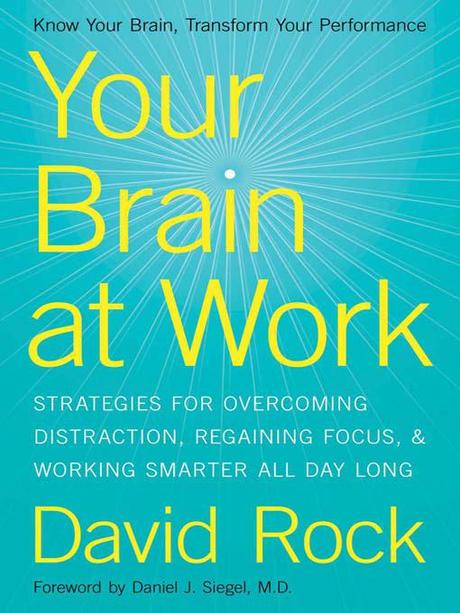 I have recently finished reading “Your Brain at Work” by Dr David Rock, and I can honestly say that, out of all the leadership books I have read, it is has had the most profound and significant impact on how I think and work, and on how I relate to the people I work with.
I have recently finished reading “Your Brain at Work” by Dr David Rock, and I can honestly say that, out of all the leadership books I have read, it is has had the most profound and significant impact on how I think and work, and on how I relate to the people I work with.
“This book will help you work smarter, be more focused and productive, stay cool under pressure, reduce the length of meetings, and even tackle the hardest challenge of all: influencing other people.” – Dr David Rock.
The book delves into the neuroscience of the brain, but does so in a way that is relevant, accessible, and easy to understand. Rock believes that “Your capacity to change yourself, change others, and even change the world, may boil down to how well you know your brain.”
The book is centered around three main insights:
1) Conscious thought is a finite resource; and as any finite precious resource it needs to be carefully managed.
Science shows that our conscious thinking resources (which are located in an area of the brain called the prefrontal cortex) are less plentiful than we might think. To make this point David Rock uses the metaphor of a theater stage. Our conscious thinking is likened to a theater stage, with thoughts entering the stage or exiting it all the time. As it turns out, this stage has severe limitations: audience members clamor to jump on stage all the time (we are easily distracted and self-inhibition requires effort); actors can only play one part at a time (no multi-tasking); no more than three or four actors (ideas) can be on the stage at any one time; and so on.
I think this is a great metaphor. It made me think far more intelligently about how I structure my workday and I am now consciously scheduling activities to optimise my brain output. It really works!
2. The Importance of “Mindfulness”.
The second main insight of the book is the role and importance of the “director” (following the stage metaphor). Urging readers to develop a “meta-perspective” – the ability to “think about your thinking” – to take a step back and observe one’s own thought processes is one of the key messages of this book. According to Dr. Rock, mindfulness is nothing mysterious, it is simply a habit that you pick up with practice, but studies show that people who have learned this skill of accessing a quieter mind on demand, are more likely to solve problems, be happier, and come up with great ideas.
2. Not only does understanding your brain change you, but it changes your ability to relate to and influence others.
Basically, the brain organises itself into two primary states: an “away” state, or a “towards” state. In a “towards” state we are generally open to new ideas, creative thinking, other people’s opinions etc, but in an “away” state we become defensive and emotional. Our emotional experience is connected to a large brain network called the limbic system. When the limbic system gets overly aroused, it reduces the resources available for the prefrontal cortex functions we use in decision-making and problem solving. In other words, in an “away” state our ability to think rationally, logically, creatively and clearly is severely diminished. Too often in work meetings or conversations we neglect to acknowledge and assess the state of another’s person’s mind, building walls instead of bridges, and thereby limiting our ability to collaborate and cooperate.
